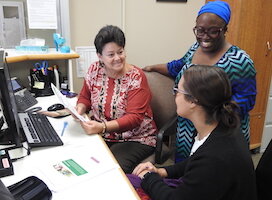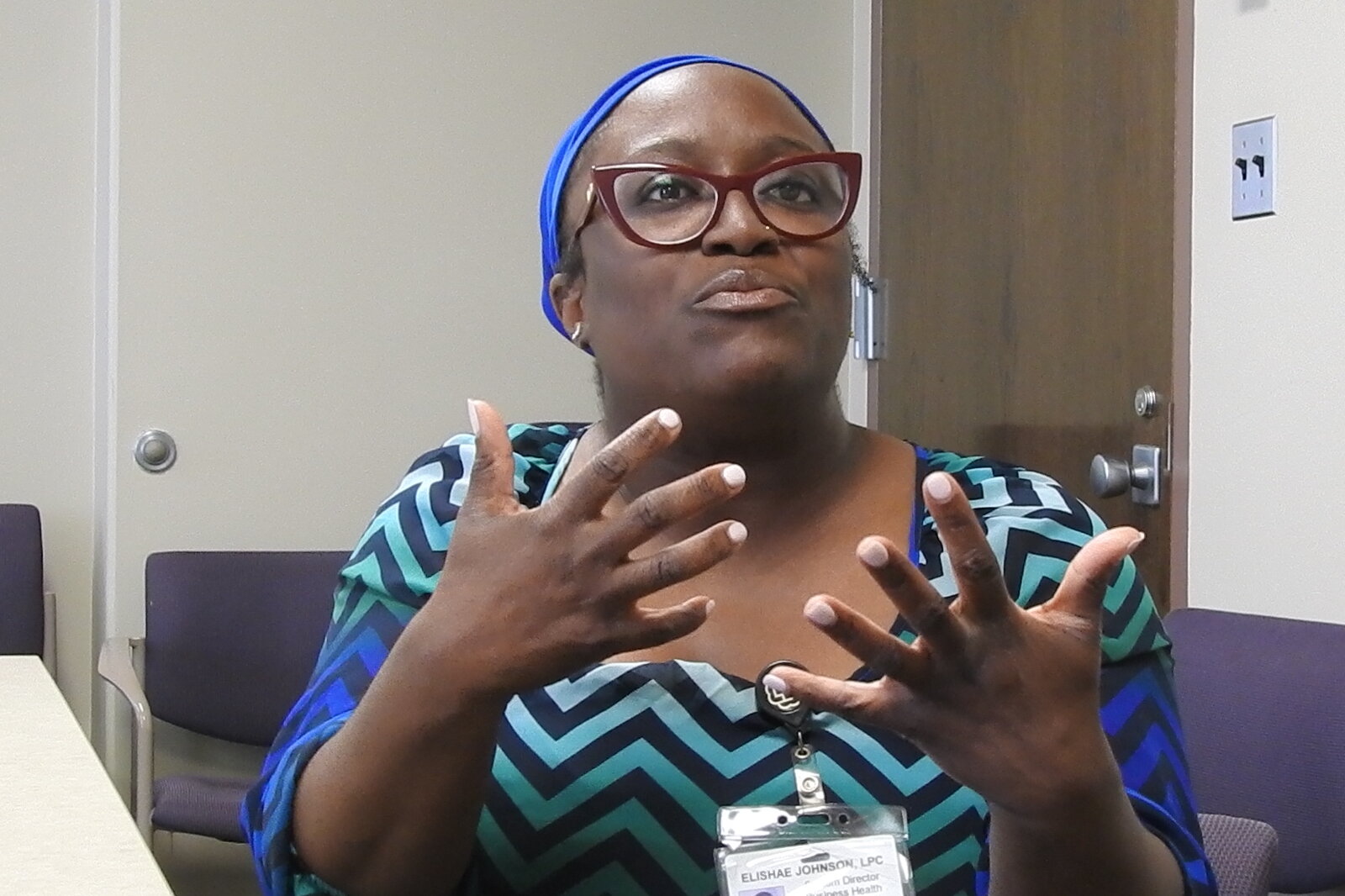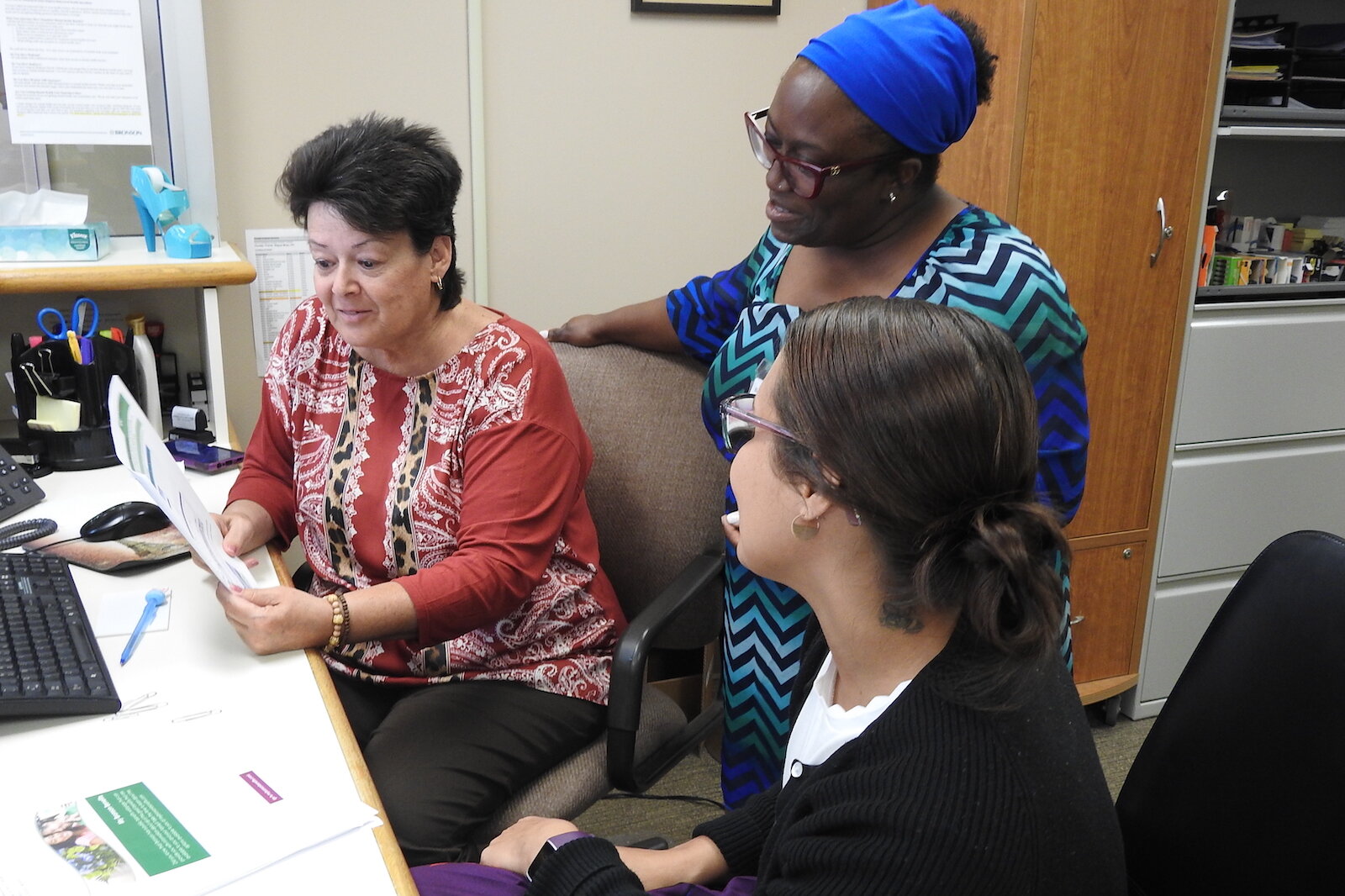Trained in the treatment of both physical and mental health needs, PMHNPs serve as a bridge between those worlds.
This article is part of Mental Health Workforce Crisis: Effective approaches to Improving the pipeline, a solutions-focused reporting series of Southwest Michigan Journalism Collaborative. The collaborative, a group of 12 regional organizations dedicated to strengthening local journalism and reporting on successful responses to social problems, launched its Mental Wellness Project in 2022 to cover mental health issues in southwest Michigan.
Para leer este articulo en español dale click aqui.
Short on time and money, nurse practitioner KrisAnne Cravens stopped just shy of finishing a graduate program that would have let her help fill a growing gap between Michigan’s mental health needs and its ability to meet those needs.
A flurry of new training programs, grants, and practice opportunities could mean more people overcome such obstacles and enter a fast-growing mental health field that leverages medical and mental health expertise to create healthier communities.
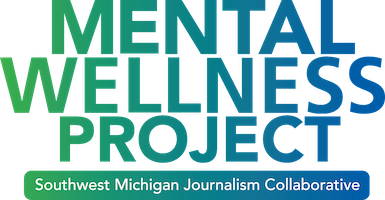
Cravens, a family nurse practitioner at Integrated Services of Kalamazoo, pursued certification as a psychiatric mental health nurse practitioner, or PMHNP ― a role that combines the medical expertise of a nurse with mental health training.
Financial stressors and the steep time requirements of the program kept the trained nurse from finishing the certification she hoped would help her better care for people battling the mental impacts of trauma.
More PMHNPs could ease the strain on an already depleted mental health care workforce, exacerbated when the COVID-19 pandemic ramped up physical and mental stresses.
Many medical providers responding to those needs lack the expertise to properly treat mental health concerns or to spot the psychological root of physical ailments, says Elishae Johnson, system director of business health services at Bronson Healthcare.
Mental health workers, on the other hand, may lack the experience to see and address medical conditions, Johnson says. “The body doesn’t separate,” Johnson says. “But we do; the field does that.”

Patients in need of both kinds of care bounced between separate physical and mental specialists have long waits to address concerns that could impact the quality of their lives, she says.
Enter PMHNPs.
Trained in the treatment of both physical and mental health needs, PMHNPs serve as a bridge between those worlds. These professionals often begin their careers as medical nurses and then add a mental health specialty certification.
The Mental-Physical Connection
Some PMHNPs work at doctor’s offices and medical centers and are available to be called in for a consultation or to serve as the first contact for a patient. Trained to recognize mental health concerns lurking behind physical complaints, PMHNPs may detect symptoms medical staff might miss. Others, stationed at mental health-focused facilities, may spot an underlying medical condition amplifying mental struggles.
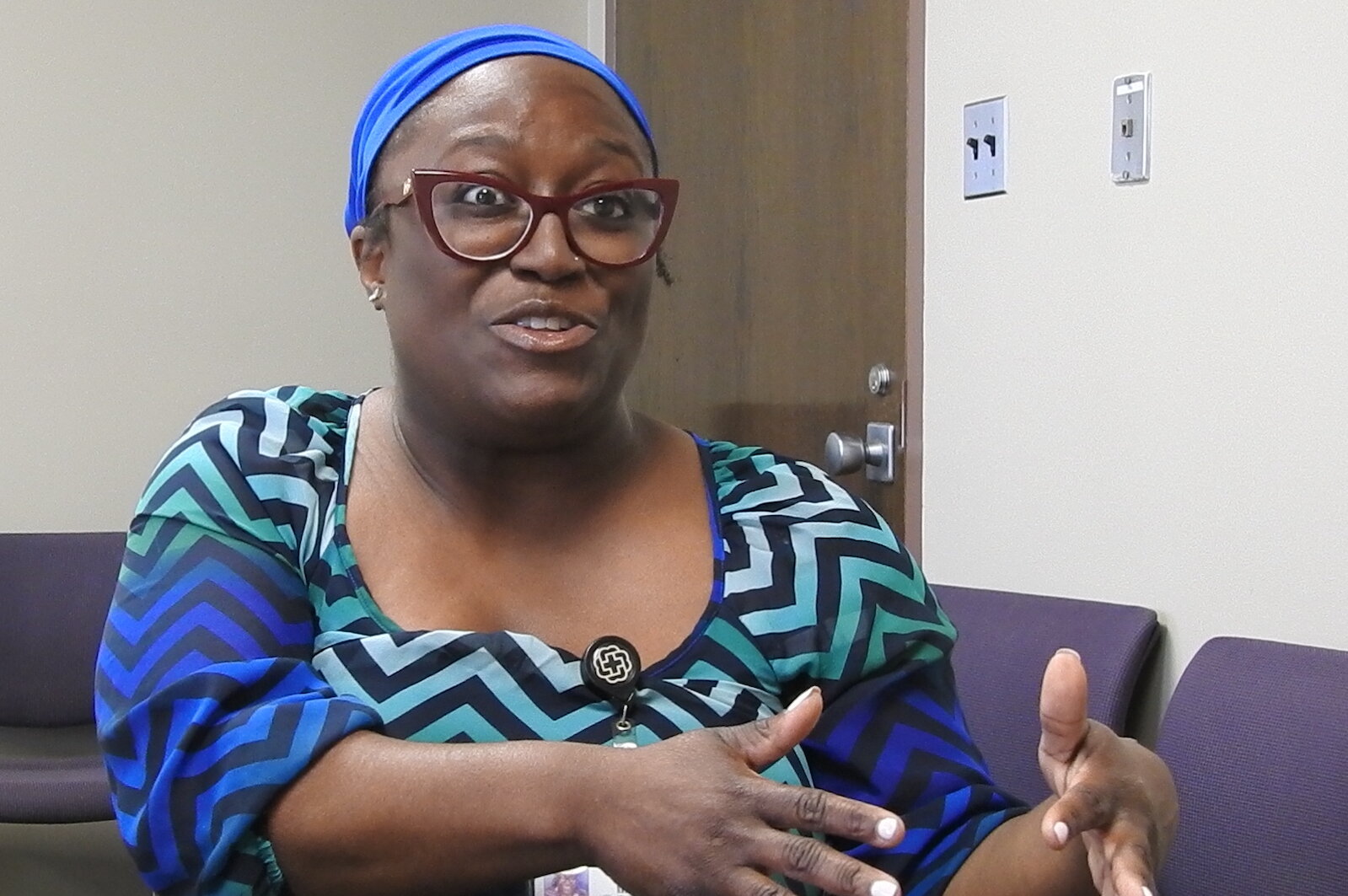
PMHNPs also have extensive knowledge about and can authorize mental health-specific medications. This ability will have increasing value as the U.S. confronts by 2024 a predicted shortage of up to 30,000 psychiatrists, which constitute the other mental health care worker class with prescribing authority, according to a study published in 2018 by the National Institutes of Health.
KrisAnne Cravens carries more than $60,000 in student loan debt. Many workers discover that the high cost of graduate programs, coupled with the difficulty of performing 600 hours of required clinical experience, stands in the way of earning the mental health specialty certification. Universities, too, worry they will run out of agencies willing to let their PMHNP students work those hundreds of clinical hours.
Thanks to Michigan schools ramping up efforts to provide PMHNP certification, the state could see an increasing pool of PMHNPs soon. Western Michigan University is exploring the possibility of such a program and agencies like Pine Rest Christian Mental Health Services are already making space for trainees to practice what they learn.
Those efforts, and state funds supporting them, could mean more robust mental and physical health care workforces in coming years, Cravens says. Meanwhile, she says, PMHNPs already in the field “can stand in that gap and help people get the care that they need.”
“We are everywhere.”
PMHNPs work in hospitals and mental health centers, inpatient and outpatient clinics, schools, geriatric homes, home-based care programs, prisons, crisis centers, or anywhere someone might need care. They are projected by the U.S. Bureau of Labor Statistics to be the fastest-growing profession over the next decade,

“We are everywhere,” says Umeika Stephens, the PMHNP and psychiatric mental health program coordinator for Wayne State University.
Wayne State’s program, adopted in the 1990s and turning out 174 program graduates since 2010, has seen significant enrollment increases in recent years. About 45 students are enrolled in the latest cohort, and inquiries pop into Stephens’ inbox daily, she says.
A newer certification program, at Saginaw Valley State University, has seen strong interest as well, according to Kathleen Schachman, PMHNP program coordinator at that school. Schachman spearheaded the school’s new program after frustration led her to seek certification as a PMHNP herself. As a medical professional, she had grown tired of seeing patients with mental health needs and not having the knowledge to safely care for them, Schachman says.
A $2.8 million federal grant helped SVSU produce 105 certified PMHNPs in the past four years, doubling the number of Michiganders with that certification from when the program began in May 2019, Schachman says.
In the past two years, Wayne State and Michigan State University each announced $1.6 million in grants from the state to bolster their PMHNP programs. The grants enable each school to provide stipends for qualifying students who commit to work in medically underserved areas after graduation. As of last month, the Michigan Department of Health and Human Services reported 12 students receiving funds from the grant program at Wayne State and another 12 studying for PMHNP certification with grant assistance at MSU.
The Difference a Grant Makes
Such a grant could have made a world of difference for Rupinder Kaur, currently training for her PMHNP certification. Kaur hopes the certification will allow her to connect more personally with patients than she can as a registered nurse working for Integrated Services of Kalamazoo.“Yes, oh, my god, yes,” Kaur replies when asked if financial help would have eased the strain that came with pursuing that dream.
Raising her own daughter as well as the children of her sister while taking on a rigorous graduate program, Kaur had to cut back from full-time work to two days and then one day a week. The move decimated the family’s budget. They downgraded their home, took loans to pay the bills, and cut expenses in every way possible to get her through the program.
“No vacation,” Kaursays. “No extra stuff. Nothing.”
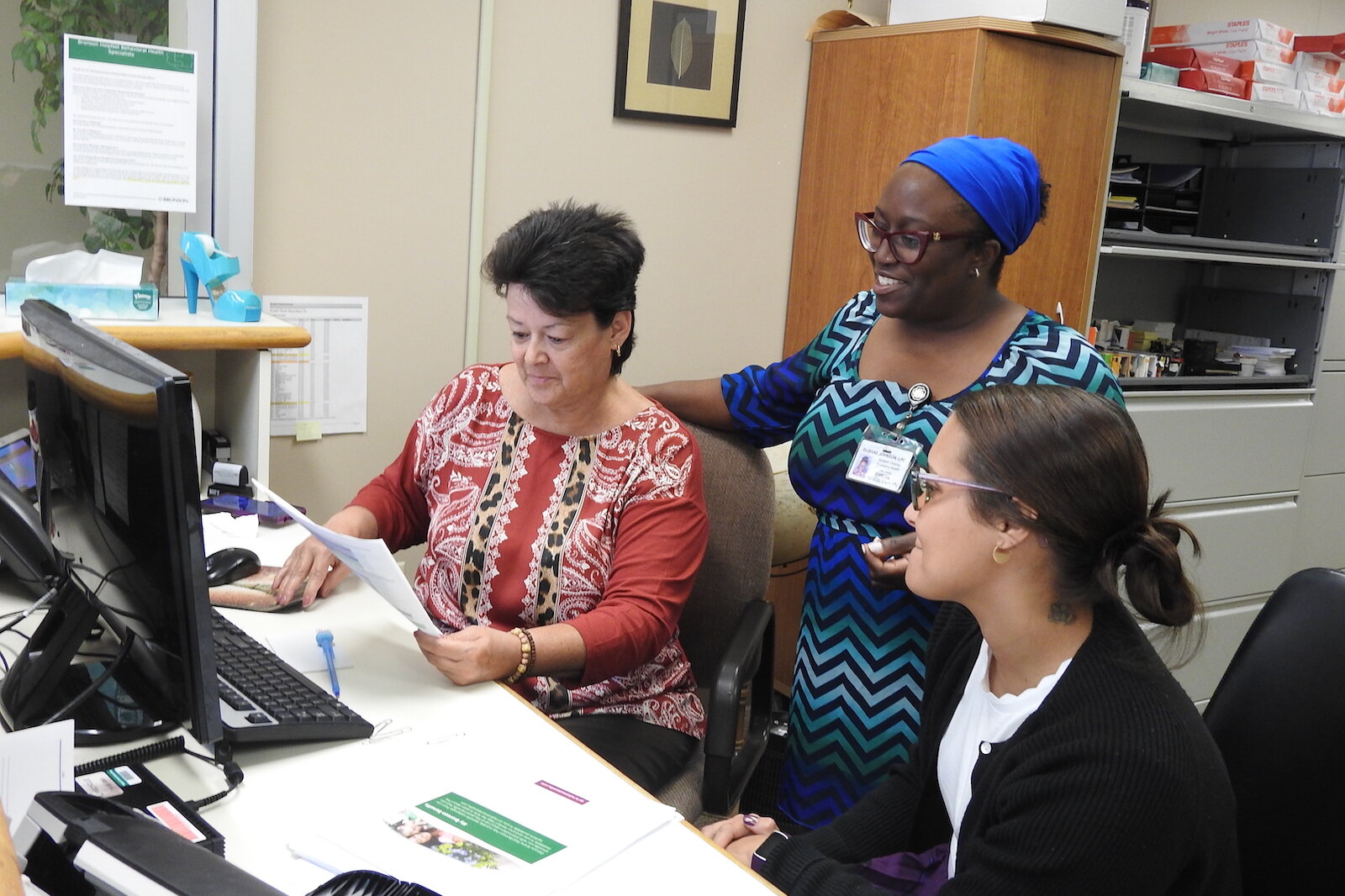
Kaur thinks she herself got lucky, While some of her classmates have to pay as much as $3,000 per quarter to earn their clinical hours, ISK offered Kaur an internship. The internship allows Kaur to earn her clinical hours without paying for them. In addition, online classes, which she takes through a university in Minnesota, help her integrate the program into her home life.
Spring Arbor University started a fully online PMHNP program two years ago. That program has grown steadily as nurses see and respond to a need for mental health care in their communities, a university representative says.
The Bronson School of Nursing at Western Michigan University recently commissioned a feasibility study to determine if the Kalamazoo school can offer a PMHNP program. Study results were still pending as of last month.
However, administrators anticipate difficulty finding clinical placements for students, which could hamper the creation of the program, Dr. Elissa Allen, program coordinator for WMU’s master’s degree program in nursing, says in a written statement. The school would probably also struggle to hire qualified nurse educators for the program, with the pay in that field trending lower than what the same person could earn working clinically, Allen says.
In the meantime, to help bridge the mental-physical care gap, WMU students in the school’s holistically certified pre-licensure nursing program “learn to promote health, wellness, and well-being for the whole person, whether it relates to the mind, body or spirit,” according to Allen. Holistic preparation means registered nurses graduate from WMU’s program prepared to link patients to both mental and physical care. But the graduates do not have the advanced-care certification of a PMHNP, Allen says.
A Need for More Clinical Placements
More certification programs raise the bar for everyone, leading to stronger programs turning out excellent providers, says SVSU’s Schachman, who welcomed the idea of WMU joining the growing training field.
But more programs also mean more competition for the limited agencies willing to provide clinical experiences, bottlenecking the certification process. When trying to find placements for her increasing number of students, Schachman says that, “Many times you’ll hear, ‘Nope, nope, nope.’ That’s the challenge, right there.”
Ideally, any PMHNP program that WMU would launch would include built-in clinical internship opportunities, Schachman noted.
Pine Rest Christian Mental Health Services in Kent County offers a residency training program for already-licensed PMHNPs. It recently opened slots in the program for students earning clinical hours toward licensure, according to Gretchen Johnson, Pine Rest chief nurse executive. Johnson hopes other healthcare organizations find ways to allow PMHNP trainees to earn their practice hours.
GVSU uses a grant to partner with health organizations that help the school secure clinical hours for its PMHNP students. There’s a built-in benefit to doing so for employers, notes Katherine Moran, associate dean for graduate programs at Grand Valley State University’s Kirkhof College of Nursing. Such interns provide a pool of potential hires already familiar with the organization’s workflow and culture.
Kaur, on her way to a PMHNP certification, applauds such efforts to train and support workers who can use their medical skills and mental health knowledge to strengthen their community. In the end, she says, it’s all about helping patients get better.
“I just want them to get the help they need and live their best life,” Kaur says. “Because we all deserve our best life.”

